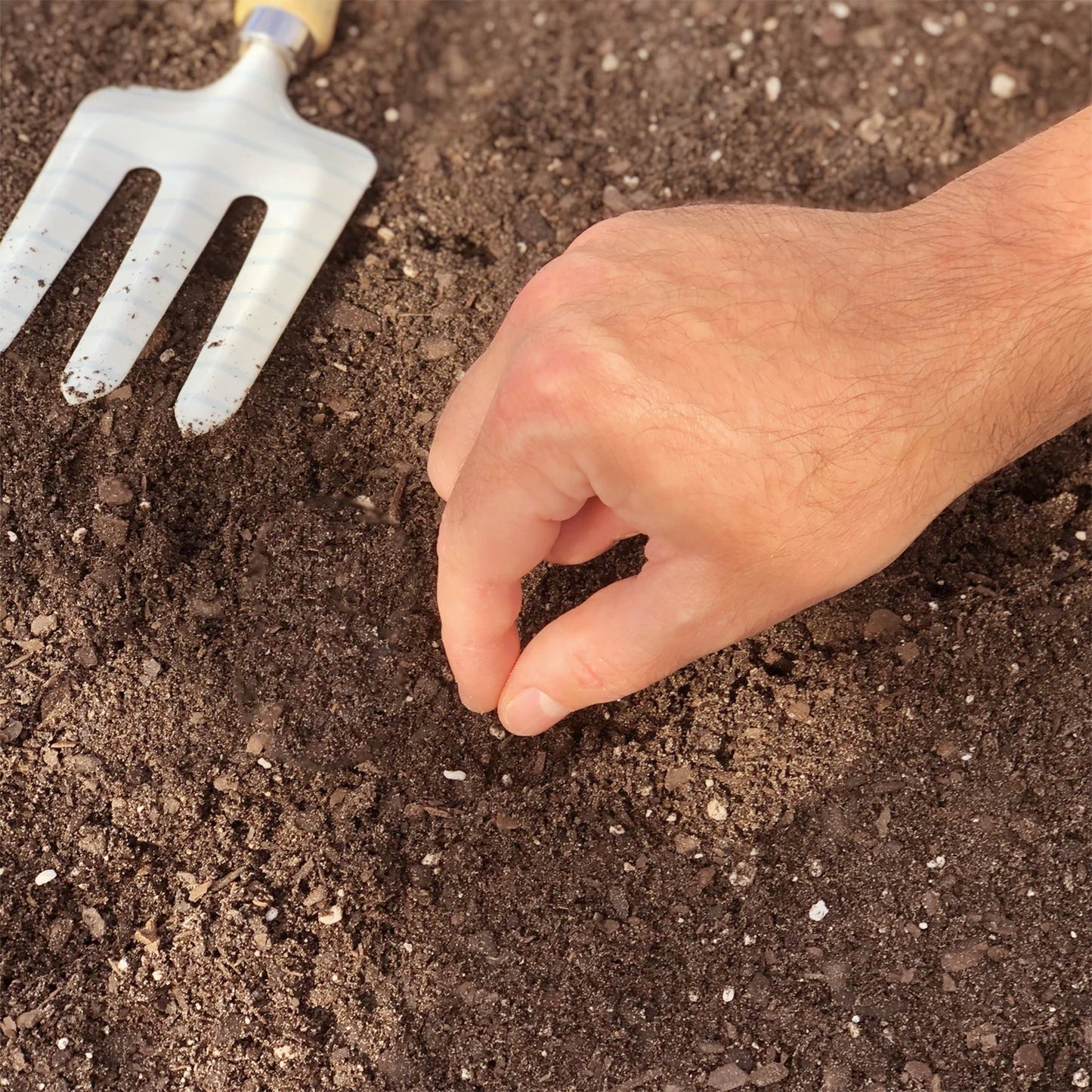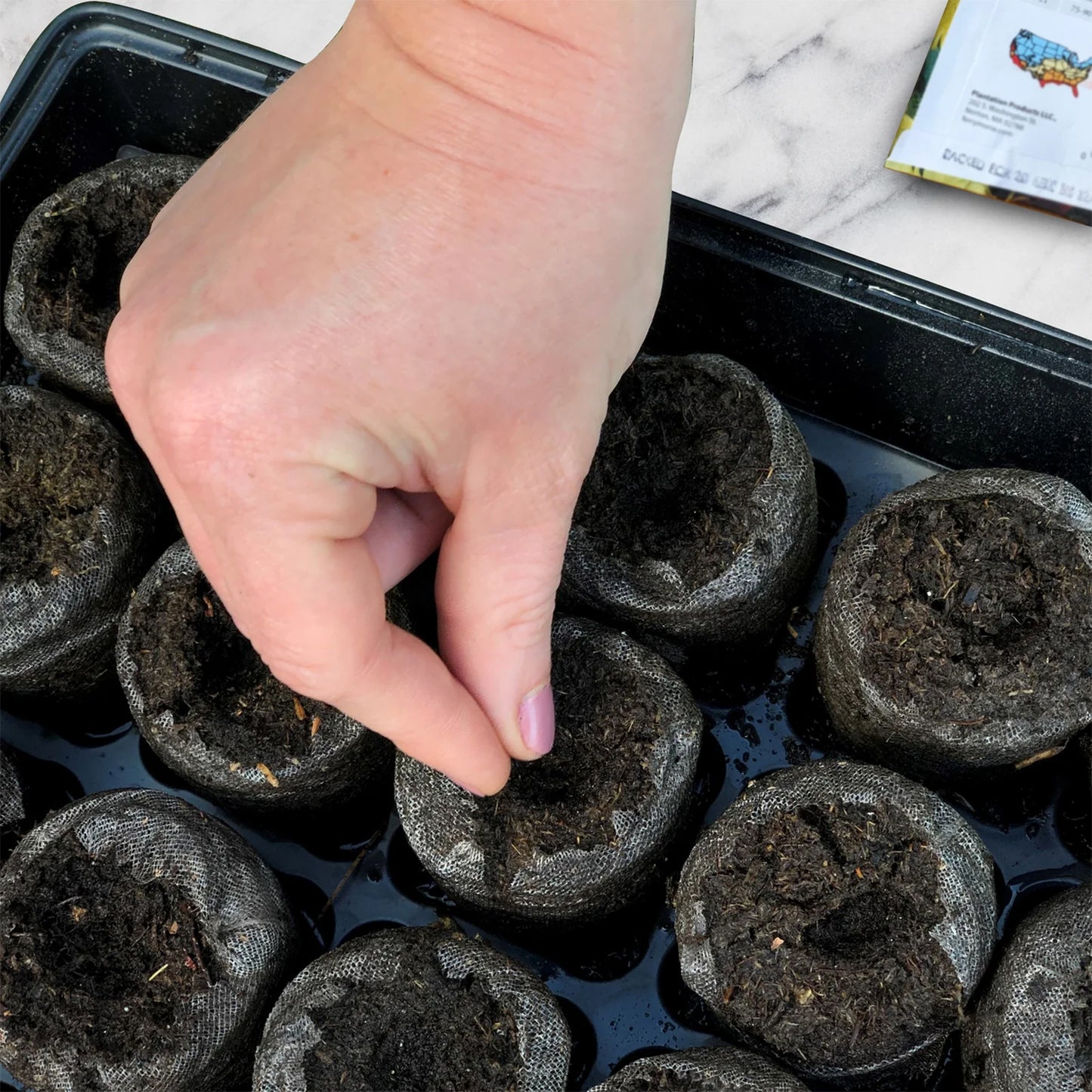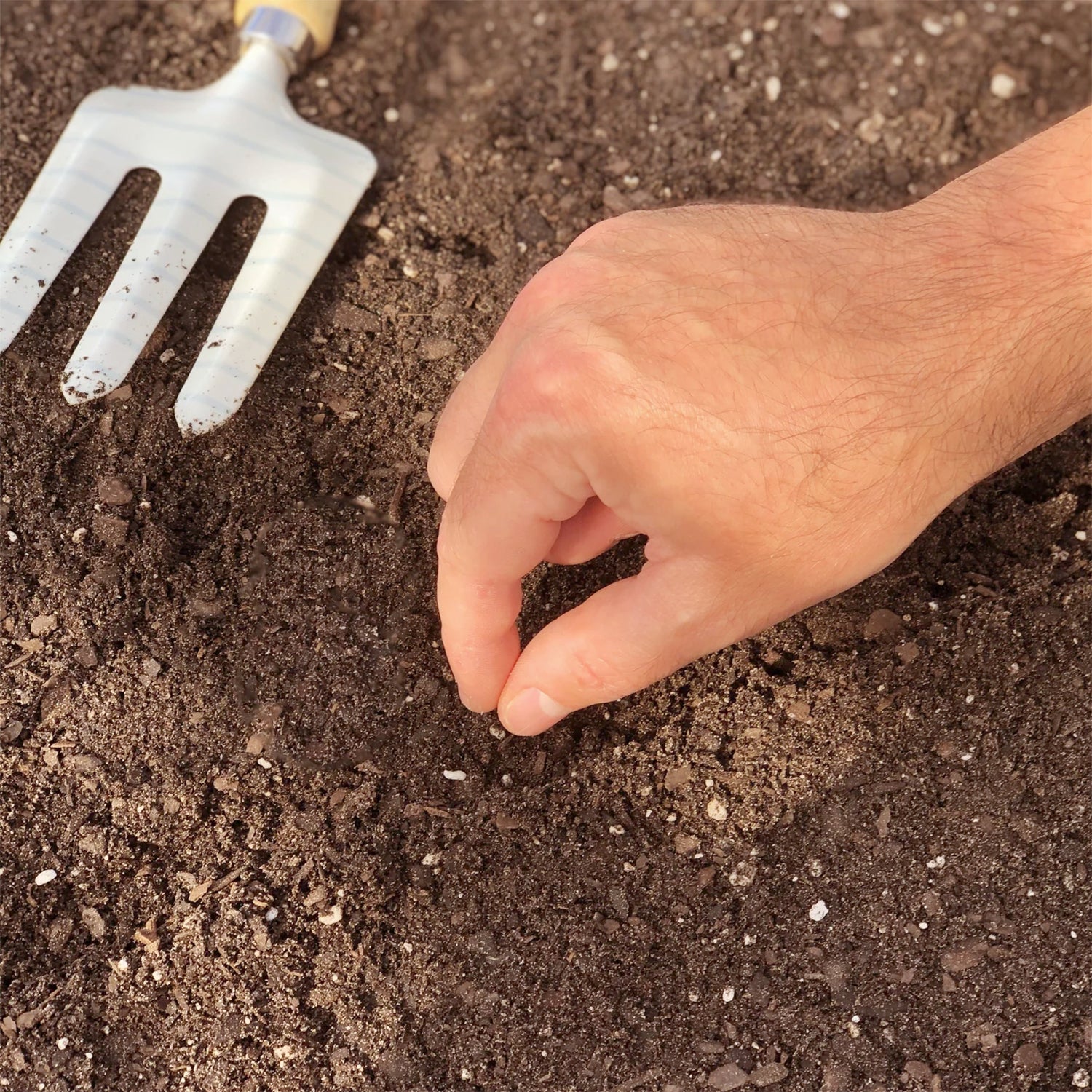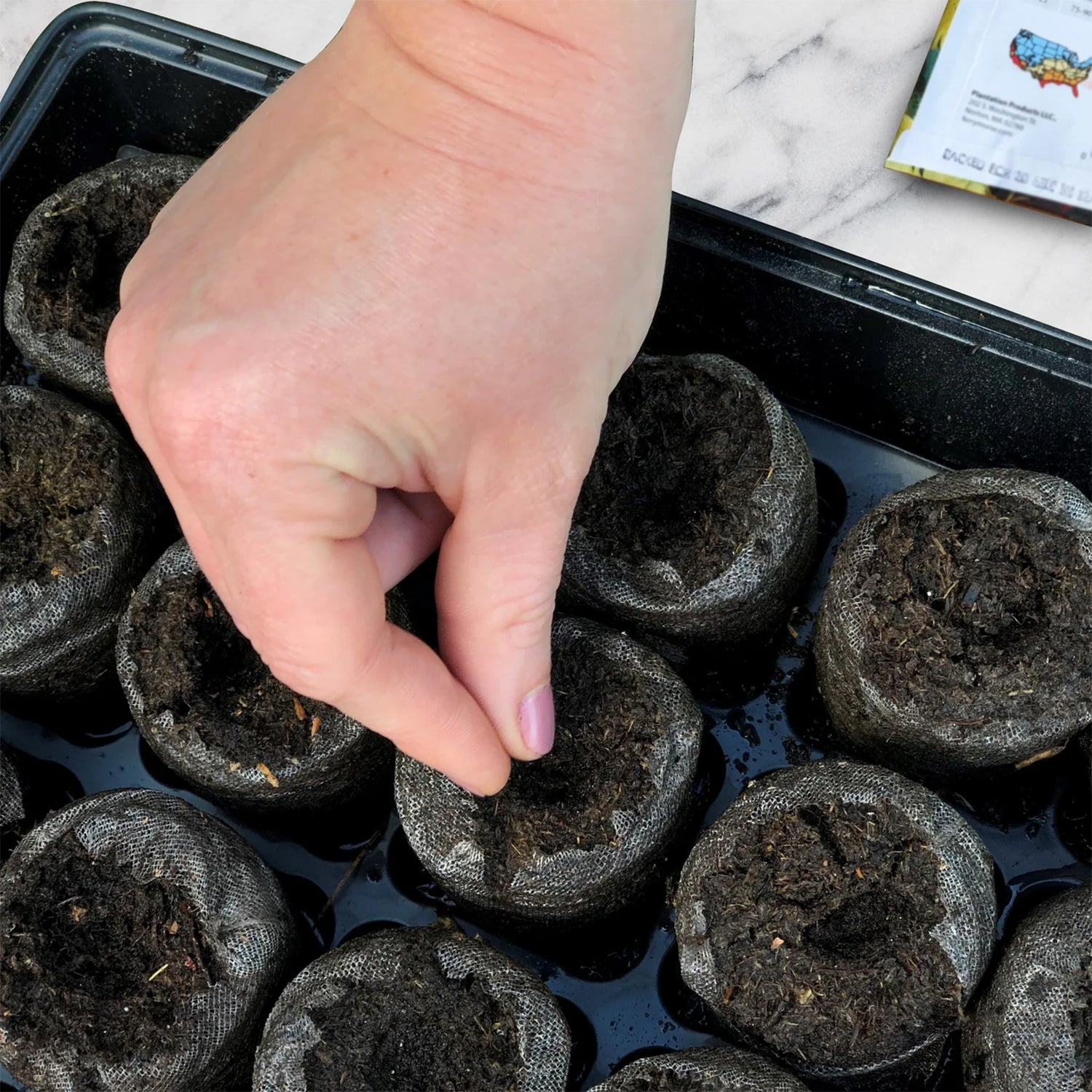Growing Instructions:
Sage seeds can be sown directly into the garden when the soil is warm and all danger of frost is passed. Soil temperature (not air temperature) should be warmer than 15°C (60°F) for seeds to germinate. Planting at a lower temperature will delay germination. Choose a location that receives at least 6-8 hours of sunlight daily. Space seeds and plant to the depth indicated below. Press seeds into the soil to ensure good contact and cover with 6 mm (1/4") of soil. After planting, water the seeds with a gentle mist or shower. It is critical to keep the soil consistently moist, but not soggy during germination. When your seedlings reach a height of a few centimetres (inches) and have developed 2 or 3 pairs of leaves, it is important to thin them out, according to the plant spacing indicated below. Do not allow the soil to become dry, as young plants have underdeveloped roots and can quickly dehydrate, particularly in windy conditions.
For an earlier crop, seeds can be started indoors 6 to 8 weeks before the last frost in your area. Follow the seed depth and spacing guidelines indicated below. Once all danger of frost has passed, seedlings should be hardened off before planting in their growing location. Seedlings should be transplanted according to the plant and row spacing directions below. Regularly monitor your plants and ensure that the soil remains moist, but not soggy while they establish themselves in their new environment.
Click here to read more information on planning and planting a garden.
- Planting Depth: 6 mm (1/4")
- Seed Spacing: Sow sage seeds roughly 2.5 cm (1") apart in rows, keeping rows approximately 45 cm (18") apart.
- Plant Spacing: 20 cm (8")
-
Instructions for Nutrient Care:
Feed plants SUPERthrive once per week. Mix 1.2 ml (1/4 tsp) per 4L (1 gallon) of water in a watering can and apply solution to the base of the plants.

















